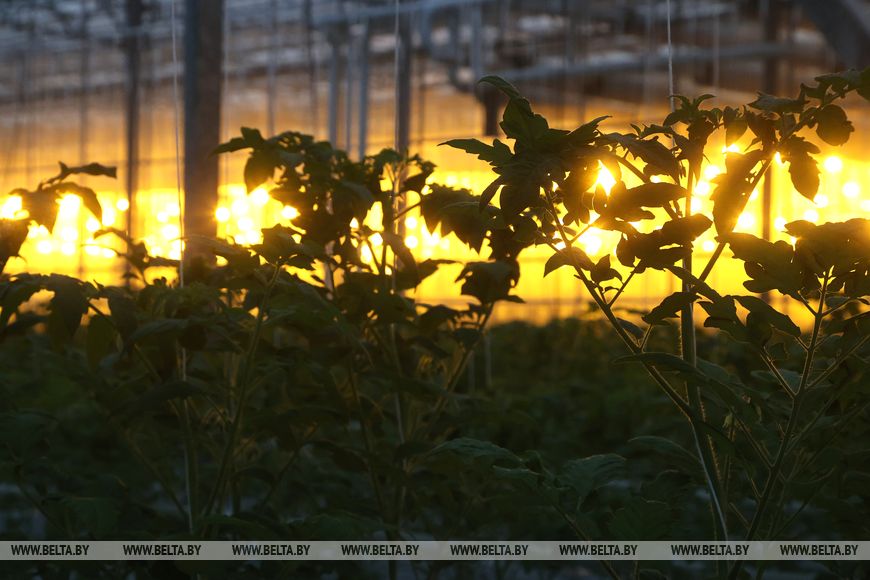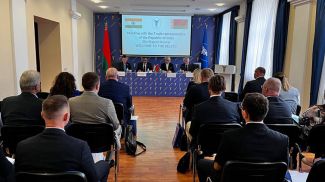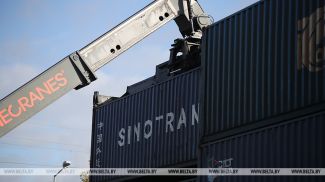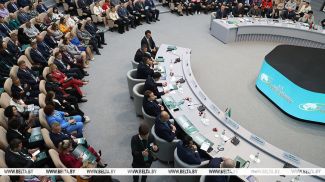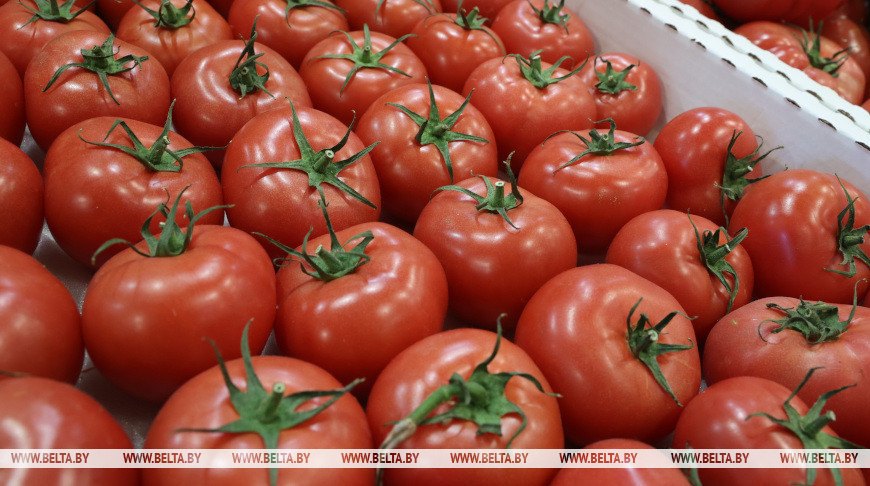
KIROVSK DISTRICT, 14 February (BelTA) - By 2027, Belarus will be 86% self-sufficient in tomatoes, Belarusian Deputy Agriculture and Food Minister Vladimir Grakun told the media during the working visit of Belarusian Prime Minister Roman Golovchenko to Rassvet agricultural company named after K.P. Orlovsky in Kirovsk District on 14 February. The progress in the implementation of the government's instructions and the strategy for the development of greenhouse vegetable farming in Belarus for 2023-2027 was examined during the visit, BelTA has learned.
“The main task of the greenhouse complex was to provide the population with vegetable products in the off-season,” Vladimir Grakun said. “The corresponding strategy has been developed and greenhouse complexes have been selected to ensure that in the off-season we do not need to import these products. The strategy included 10 greenhouses. They carried out modernization on 23 hectares, which helped us meet 100% of the needs in domestic cucumbers in 2023. In 2024, we fulfilled it [the plan for domestic cucumbers] by 161% and started work on tomatoes.”
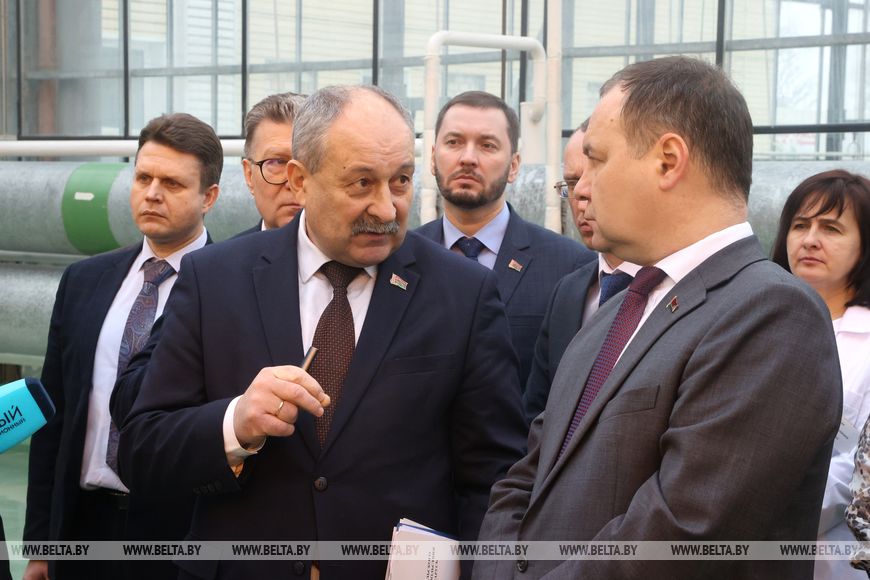
According to the deputy minister, in 2023 tomato production was to make up 35% of the needs under the strategy, but tomato production in the country reached 37%. “For the remaining period until 2027, we have to modernize nine hectares under additional lighting and build 12.3 hectares of new greenhouses,” Vladimir Grakun said. “All of them will be used to grow tomatoes. As a result, we will be 100% self-sufficient in cucumbers (this target has already been achieved) and 86% self-sufficient in tomatoes. We also grow peppers, eggplant, greens, strawberries and flowers.”
Vladimir Grakun explained that growing vegetables in the off-season on additional lighting is an expensive but profitable technology. “The preferences provided by the state help these enterprises to work profitably,” he said. “According to the 2024 results, we do not have a single enterprise with negative profitability in vegetable production (it is 5-6%). According to preferences, electricity in such greenhouses is 23% cheaper and gas supply is 30% cheaper. The state goes for such support in order to provide the population with domestic products in the off-season.”
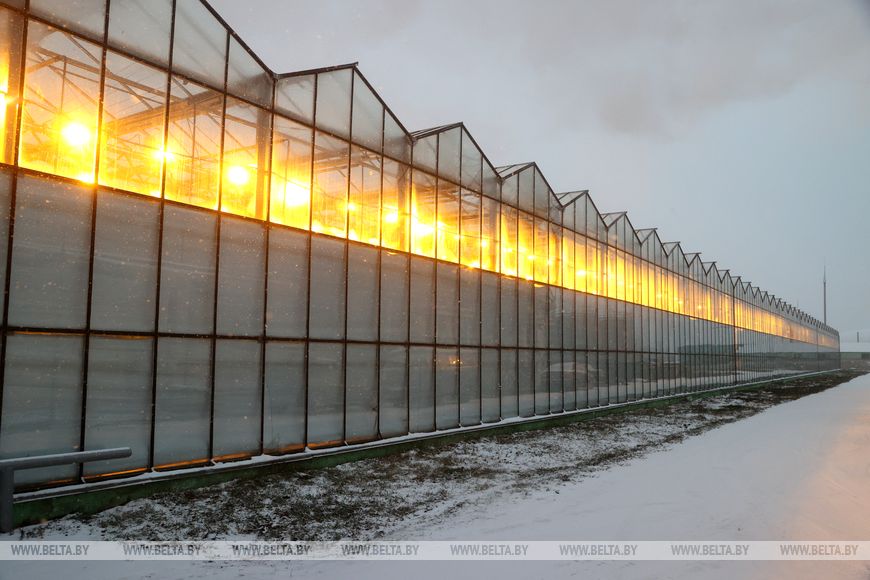
This is all the more important and relevant amid current sanctions, when foreign products could simply not come to the Belarusian consumer. “We have done everything to ensure that the people did not feel the sanctions pressure on Belarus: we have plenty of vegetables. We have everything,” he said.
